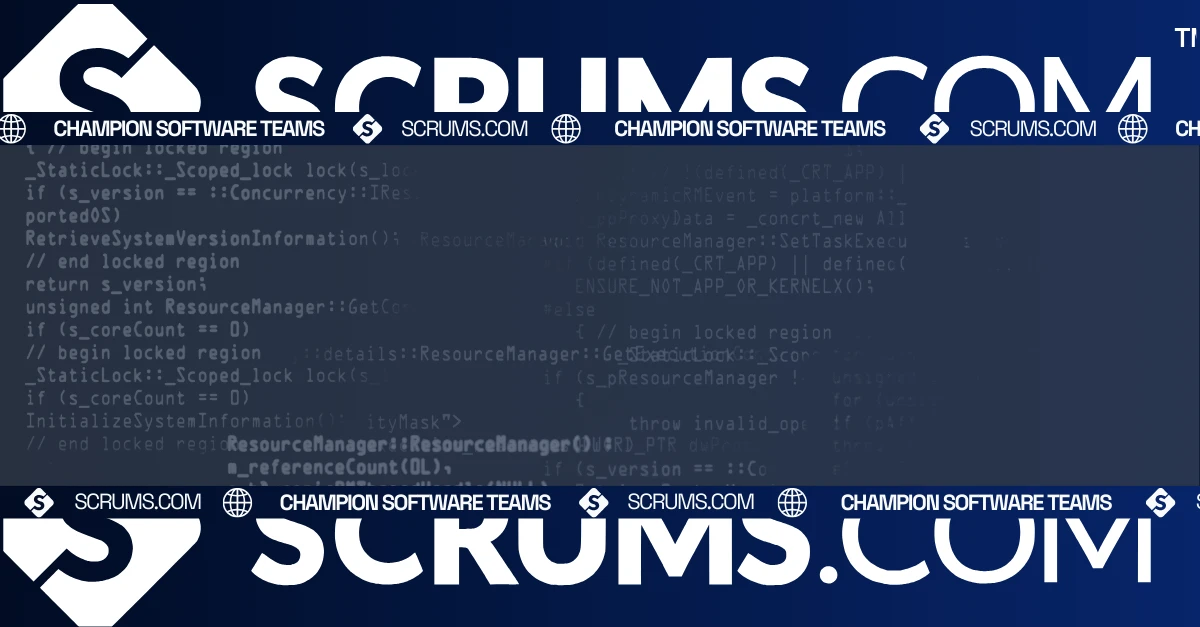TestNG: Powerful Testing Framework for Java Applications
Introduction to TestNG
TestNG is a popular testing framework for Java that supports a wide range of testing methodologies, including unit, functional, and integration testing. It’s designed to simplify the testing process by offering powerful features such as annotations, parallel execution, and detailed reporting. TestNG is especially relevant for software development companies looking to optimize their testing strategies, improve efficiency, and deliver high-quality software faster.
What is TestNG?
TestNG, short for "Test Next Generation," was developed by Cédric Beust in 2004 to address the limitations of older testing frameworks like JUnit. TestNG provides additional flexibility and functionalities such as data-driven testing, test configurations, and parallel test execution. It’s widely used in environments where comprehensive and scalable test suites are needed to ensure the reliability of software applications.
TestNG is highly effective for projects that require rigorous testing frameworks, such as large-scale enterprise applications, CI/CD pipelines, and cloud-based environments. Its ability to handle complex test scenarios and offer detailed reporting makes it indispensable for developers and testers alike.
Core Features and Functionalities
- Annotations: TestNG offers rich annotations, including @Test, @BeforeSuite, @AfterSuite, and more, making test management easy and structured.
- Parallel Test Execution: Run tests simultaneously, improving testing efficiency and reducing time, especially beneficial in large-scale applications.
- Data-Driven Testing: Supports data providers, allowing tests to run with multiple sets of data for better coverage.
- Flexible Test Configurations: Easily configure which tests to run in what order and in which groups, providing flexibility for regression testing or new feature validation.
- Detailed Reporting: Generates clear and comprehensive test reports, making it easy to analyze results, track failures, and improve test coverage.
- Integration with Build Tools: Seamlessly integrates with build tools like Maven, Gradle, and Jenkins for continuous integration and deployment.
- Dependency Testing: Allows you to define test dependencies, ensuring the correct sequence of tests and avoiding test failures due to setup issues.
Benefits for Businesses and Development Teams
For Businesses:
- Improved ROI: By automating and scaling testing processes, TestNG reduces manual testing efforts, leading to cost savings and faster product delivery.
- Speed to Market: With parallel execution and comprehensive test coverage, businesses can ensure software is reliable and ready for release faster.
- Higher Product Quality: Thorough testing using TestNG’s advanced features ensures better software quality, minimizing defects in production and enhancing customer satisfaction.
- Risk Mitigation: TestNG’s ability to run extensive test cases and track dependencies ensures that critical bugs are caught early, reducing risks before deployment.
For Developers:
- Ease of Use: TestNG’s clear annotation-based approach makes it easy for developers to set up, organize, and maintain test cases.
- Support for Agile Workflows: TestNG integrates smoothly with CI/CD tools, making it perfect for teams working in agile environments that require continuous testing and fast feedback loops.
- Test Scalability: The framework’s support for parallel testing and test groups allows developers to scale their testing efforts without slowing down the development process.
- Advanced Reporting: The detailed reports generated by TestNG help developers quickly identify and resolve issues, improving the debugging process.
Use Cases and Applications
TestNG is widely used across various industries and development environments.
- Unit Testing: Ideal for automating unit tests to ensure that individual components of an application work as expected.
- Integration Testing: Validates the interactions between various modules of an application, ensuring seamless functionality.
- Functional and Regression Testing: Ensures that both new and existing functionalities are working as expected after changes.
- Industry-Specific Examples:some text
- Fintech: Ensures compliance and accuracy in financial applications through robust regression and functional tests.
- Healthcare: Validates critical systems in healthcare platforms, ensuring that software functions reliably in sensitive environments.
- E-commerce: Automates tests for large e-commerce platforms, validating payment gateways, order management, and user experience.
Integration Capabilities and Ecosystem
TestNG provides extensive integration capabilities with a variety of tools:
- Compatibility with Popular Build Tools: TestNG integrates seamlessly with build automation tools like Maven and Gradle, allowing smooth integration with existing development pipelines.
- CI/CD Tool Integration: Works well with Jenkins, GitLab CI, and other CI/CD tools, enabling continuous testing during deployment cycles.
- Works with Other Testing Tools: TestNG is compatible with other testing libraries and frameworks, such as Selenium for UI testing, making it an excellent choice for comprehensive testing strategies.
- Plugins and Extensions: Numerous plugins, such as the TestNG Eclipse plugin, make it easy to manage and run tests directly from popular IDEs.
Comparison with Alternatives
TestNG competes with other testing frameworks such as JUnit, NUnit, and Spock.
- Pros: TestNG offers more flexible annotations, parallel testing, and enhanced configuration options compared to JUnit. It is better suited for larger, more complex test suites.
- Cons: TestNG may have a steeper learning curve for beginners, especially compared to simpler frameworks like JUnit.
- Cost Considerations: As an open-source tool, TestNG is free to use, making it a cost-effective option for businesses of all sizes.
- When to Choose TestNG: Choose TestNG when you need a powerful, scalable framework capable of handling complex, parallel, or data-driven tests across large applications.
Getting Started with TestNG
Here’s a step-by-step guide for business decision-makers and developers:
- Set Up TestNG in Your IDE: Install the TestNG plugin in your IDE (e.g., Eclipse, IntelliJ) or add it to your build tool (Maven, Gradle) for easy test management.
- Write Test Cases Using Annotations: Use annotations like @Test, @BeforeMethod, and @AfterClass to structure your test cases and organize their execution.
- Configure TestNG XML: Set up the testng.xml file to define test groups, parallel execution, and dependency management.
- Run and Analyze Tests: Run the test cases and analyze the detailed reports generated by TestNG to identify issues and ensure complete test coverage.
- Integrate with CI/CD Tools: Use TestNG’s integration with Jenkins, GitLab, or another CI tool to automate test execution during your build and deployment process.
- Leverage Data-Driven Testing: Use @DataProvider annotations to write tests that run multiple times with different sets of input data for thorough validation.
Refer to TestNG documentation for tutorials, guides, and community support.
Related Tools and Resources
- TestNG vs. JUnit: Compare the features, benefits, and use cases of TestNG and JUnit for automating Java-based tests.
- Integrating TestNG with CI/CD Tools: Learn how to integrate TestNG with Jenkins, GitHub Actions, and other DevOps tools for automated testing.
- Best Practices for Test Automation with TestNG: Discover strategies and tools for optimizing test automation with TestNG.
- TestNG Documentation: TestNG Documentation for comprehensive guides and tutorials.
Explore Related Software Development Tools
FAQs
We've got you covered, these are some common questions we receive. Not seeing the answer to something?...
TestNG is an open-source framework and is free to use for all projects.
TestNG enables scalable, automated testing, reducing manual efforts and improving product quality, leading to cost savings and faster release cycles.
Yes, TestNG allows for parallel execution of test cases, improving efficiency, especially for large test suites.
No, TestNG supports a wide range of testing, including unit, integration, functional, and regression testing.
Yes, TestNG integrates well with Selenium for UI testing, making it a great choice for web application testing.
The TestNG community and official documentation provide extensive resources, including tutorials, guides, and forums.
Explore Software Development Blogs
The most recent trends and insights to expand your software development knowledge.






